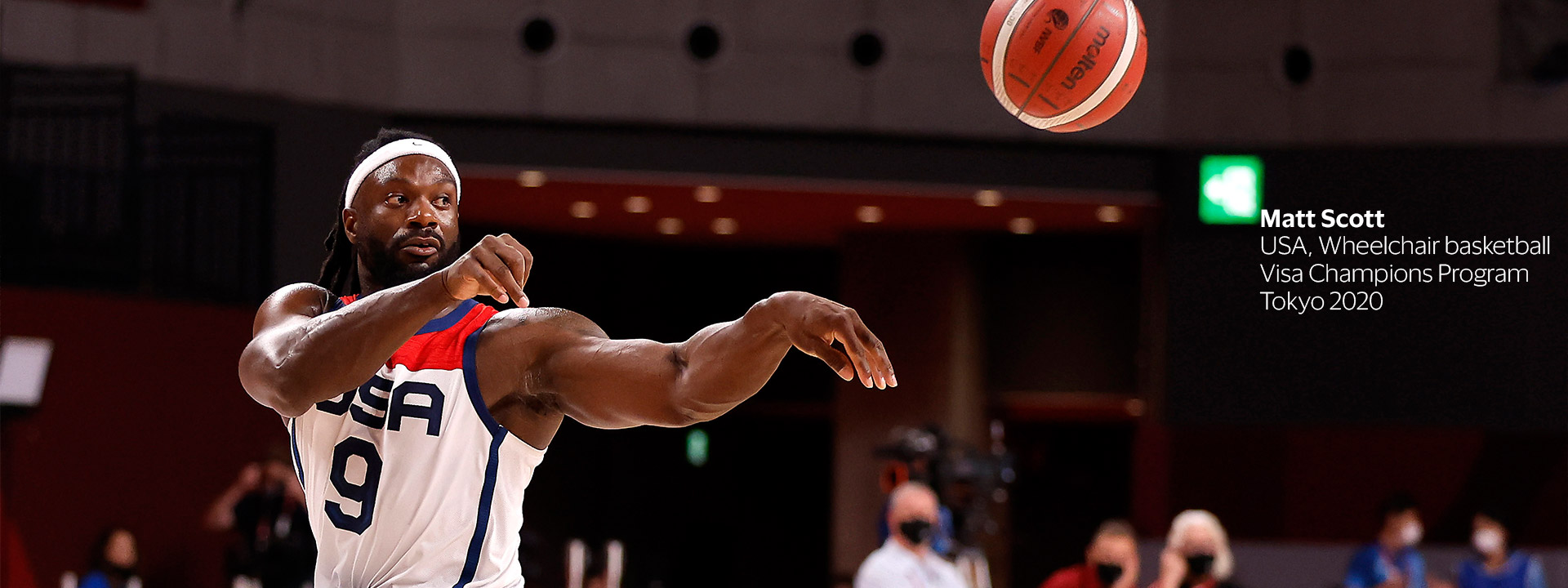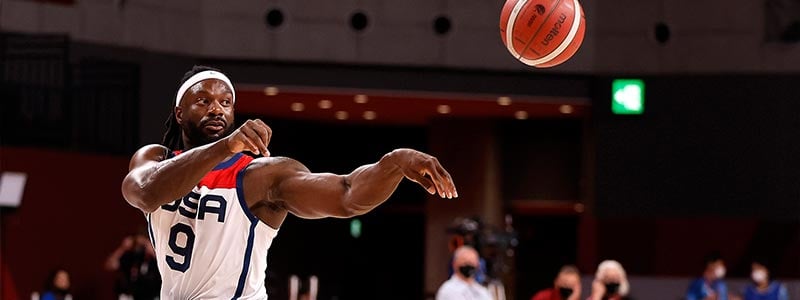

What’s the difference between a bronze medal team and a gold medal team?
“Not much,” says five-time U.S. Paralympian, one-time bronze- and two-time gold-medalist Matt Scott.
Over 18-years of playing wheelchair basketball with Team USA, he had more opportunity than most to uncover the secrets to leveling up — perhaps most importantly, the shift from an “I” mentality to a “we” mentality.
“The camaraderie that we developed over those years, going through the losses, knowing exactly what everyone is capable of, that’s what separated us.”
The names we remember
Always curious about what distinguishes an elite athlete from everyone else — the names we remember from the names we forget — Matt studied his heroes, how they ate, trained, and mentally prepared for competition.
That deep curiosity helped him not only grow into a world-class athlete, but build relationships, lead teams and gain sponsors, eventually becoming the first Paralympian to star in his own primetime sneaker ad.
“I always wanted to shift society’s perception of what disability is and what people with disabilities were capable of — that was a big motivator for me,” said the Michigan native.
Born with spina bifida, he wasn’t allowed to take gym class growing up for fear he’d be a liability. But he kept up playing basketball with able-bodied friends and proved to have an athletic ability beyond most. By the time he turned 18, he was recruited by the U.S. National Team.
The Athens 2004 Paralympic Games were his first with Team USA — and ultimately ended in a seventh-place finish. Four years later at the Paralympic Games, Beijing 2008 the team made it to the bronze medal game, but came up short again, finishing fourth.
“It was always about who are the best players and let’s put them together and see what happens,” he said, reflecting on a kind of hot-shot mentality that proliferated at the time.
Going for rose gold
Repeat disappointment shifted the way he thought about and played the game — from “how many points am I going to score” to “how can I be the best team player”?
“Our approach in 2012 was very different than it was in 2008,” he recalled.
Stepping into a new role as a veteran player, Matt led by example.
“Just showing the guys, if I score 20 points or 2 points in this game, getting the win is what’s important. I wanted to win for those guys more than I wanted to win for myself,” he said.
The London 2012 Paralympic Games proved to be a turning point — a shift from group of superstars to a true team.
The result? Bronze.
“I joke with people that that was the rose gold because we were so excited,” he said. “You could feel the trajectory going up and we knew we were four years shy of reaching our goal.”
One-for-all mentality
Four years later at the Rio 2016 Paralympic Games, Matt and Team USA were on a mission.
“We weren’t taking ‘no’ for an answer. I will never forget it,” he said.
Experience and maturity got them to number one, but Matt credits the team’s success to character and connection.
“Our team didn’t go very far without each other. We had a very one-for-all mentality, all the time,” he said.
United by a common goal, the team again set their sights on gold at the Tokyo 2020 Paralympic Games. But one year before the pandemic rocked the world, Matt faced a major health challenge.
“I had a wound that went septic. Both of my lungs collapsed. I had kidney failure. I couldn’t even hold up a glass of water in a foam cup,” he said.
In his hospital bed, he promised himself he’d make it back to the Paralympic Games.
A storybook ending
The pandemic delayed the games, giving him time to recover and train and rebuild. And in a crowd-less Tokyo, all his focus was on his team and the game.
“We repeated our gold medal performance from 2016,” he said. And about an hour later, his phone rang.
“I was elected by my peers to carry the flag in the closing ceremony,” he recalled. “It was one of the most memorable days of my life. It was very much a storybook ending for me.”
Re-establishing “why”
Ten days after Tokyo, Matt joined the Visa Champions program (née the Olympians and Paralympians Business Development Program), a two-year rotational program designed for retiring athletes.
“When you compete for four years at a time, you fear there might be these big gaps in your resume,” he said. “But a brand as well-known as Visa acknowledging that you’ve actually dedicated yourself to a goal and worked as a team, and that there’s value in what you’re doing is really a beacon for athletes like me,” he said.
Matt is now an analyst for Visa Communications, where he uses data to uplevel the team’s storytelling. “I honestly think it’s the coolest job at Visa,” he said.
“The Visa Champions program has done wonders for me,” said Matt. “Letting go of sport is like losing a friend. Connecting myself to a bigger goal and re-establishing my ‘why’ has been instrumental in helping me stay focused and grounded.”
Whether on the court or in the office, teamwork is the difference between the great and the very best.
“I know that I can lean in on my strengths and lean on others for their strengths. I don’t have to lift the entire project,” he said. “That's what makes a gold medal team and that’s what makes a gold medal project.”